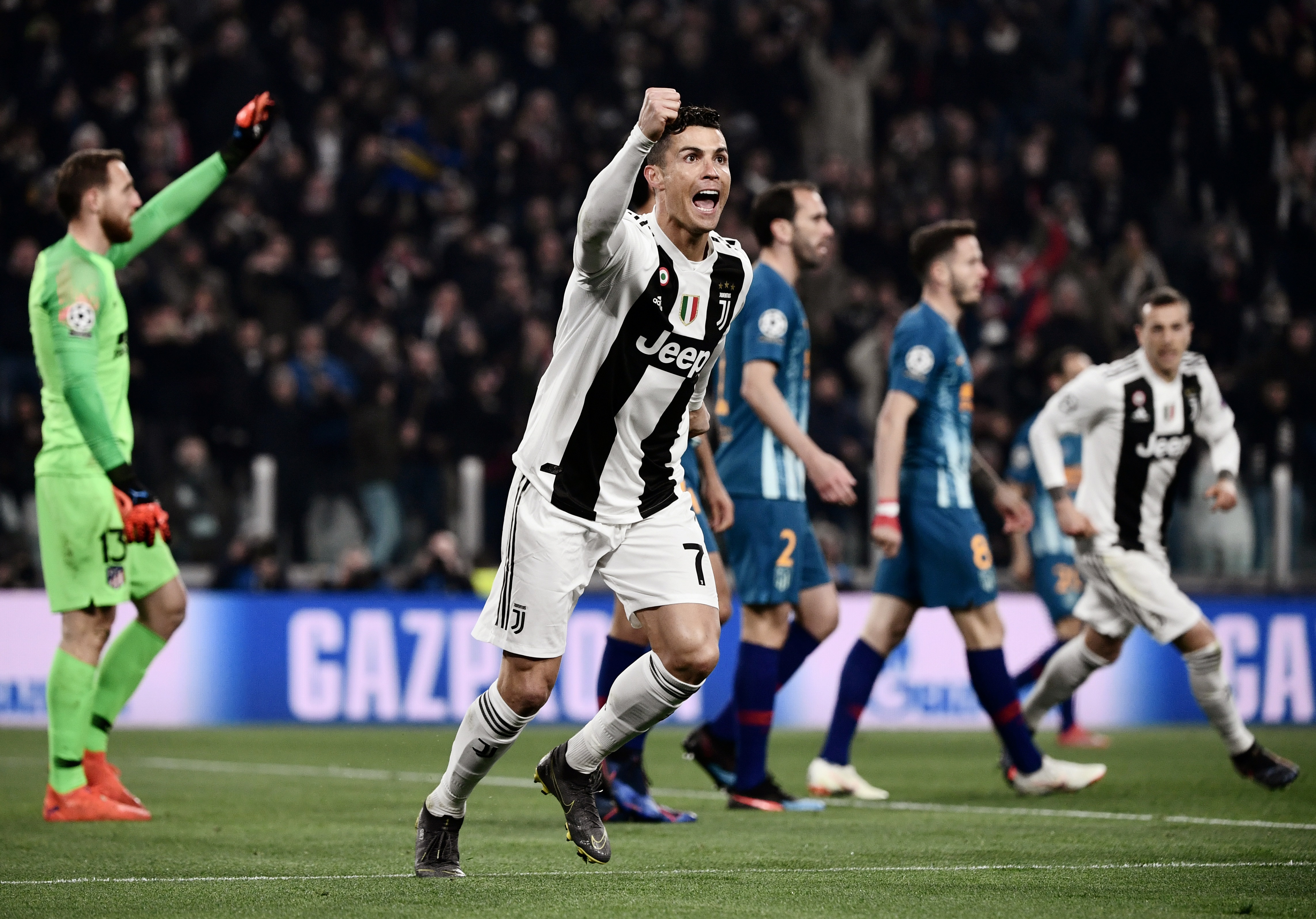World Cup icons: Xavi and Iniesta prod and probe through the pain to win big (2010)
Vicente del Bosque's men were shaken up by their opening-game defeat to Switzerland – but clear minds and cool heads saw them through to a masterful triumph in South Africa
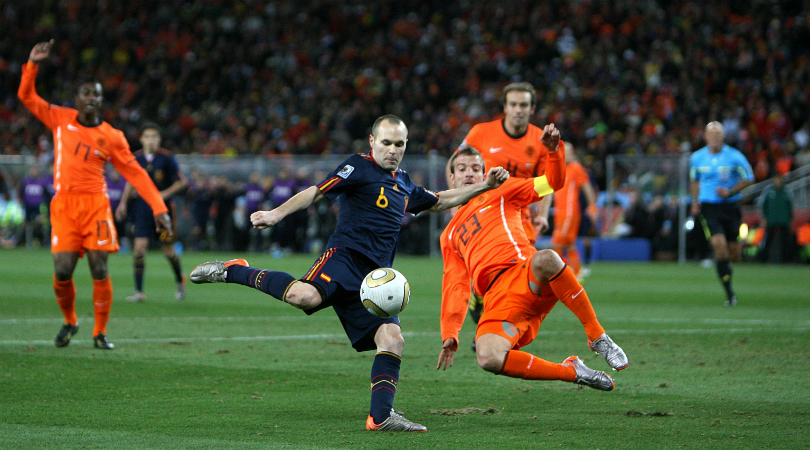
Neither Xavi nor Andres Iniesta slept a wink on June 16, 2010. World Cup favourites Spain had just lost 1-0 to Switzerland in their opening group game.
The latter was distraught. It was happening to him again. A year earlier, Iniesta had played injured in the 2009 Champions League Final against Manchester United. Advised not to shoot, he knew he was doing more damage to his right thigh.
He’d spent much of the 2009/10 season recovering not just from that – coach Vicente del Bosque had waited until the last moment for Iniesta to prove even the remotest fitness – but also the death of his close friend, Espanyol captain Dani Jarque, during pre-season.
“It was,” he wrote in his autobiography, “like nothing was right.”
Now, 77 minutes into the World Cup, his thigh had broken down again. Spain’s physios attempted to console Iniesta, lying to him that the prognosis was not bad and that the 26-year-old would be ready for La Roja’s next game against Honduras. Defeat to the willing but limited Swiss, and their best player now on the sidelines – things could hardly have looked more bleak.
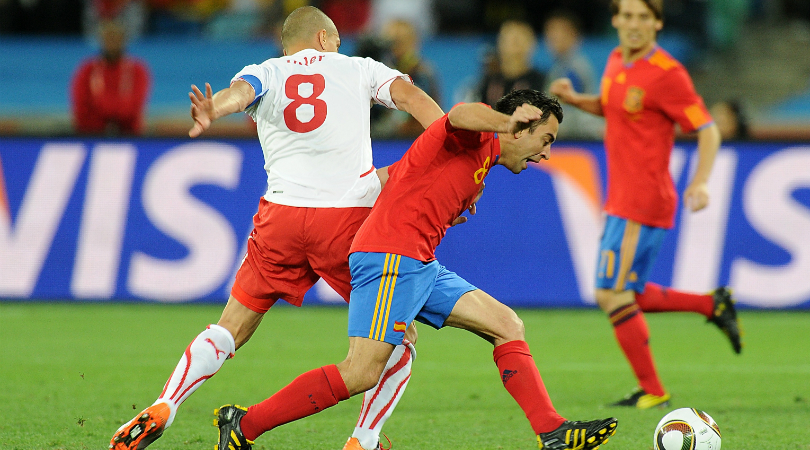
No sleep 'til Joburg
On the other side of Spain’s Potchefstroom training base, around an hour from downtown Johannesburg, Xavi sat upright in his room.
Get FourFourTwo Newsletter
The best features, fun and footballing quizzes, straight to your inbox every week.
“I watched the whole game on repeat that night,” the vice-captain later told FourFourTwo. “I couldn’t sleep. We had played really well. Seriously. All of the ball, and great chances. They wanted a goalless draw and somehow won 1-0.”
At dawn – an emotionally exhausted Iniesta having succumbed to slumber – Xavi, captain Iker Casillas and sporting director Fernando Hierro met in Del Bosque’s room.
“He looked at me and said, ‘I’ve watched the game over and over and don’t think we should change a thing’. I was so happy because I was thinking the same thing. ‘Boss,’ I said, ‘it’s incredible we lost that game. It’s pure f**king chance they won.’
“Every game meant death. We carried on the same road, knowing we’d be criticised.”
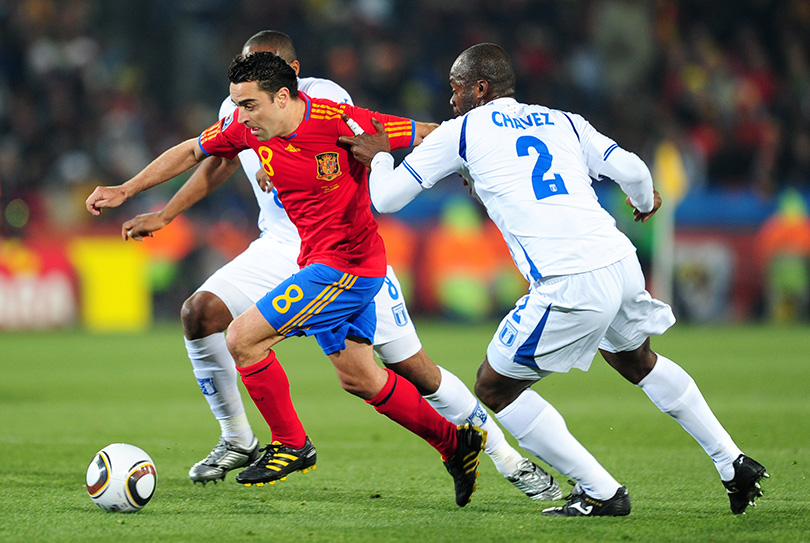
‘Tiki-taka’, first coined as an insult, had reverted to its original interpretation amid mistrust in the Spanish media, but the endless “carousel” which had so dizzied Alex Ferguson’s United the year before would remain.
Del Bosque not only trusted the system, but the two players who could best deliver it. The two players whose nicknames within the squad were instructive: Xavi was 'Maki', short for maquina, or machine; Iniesta was 'Cerebro', the brain.
Come a long way
The first time that Xavi and Iniesta had shared a pitch was the latter’s maiden training session with the Barcelona first team a decade earlier, as an impossibly shy 16-year-old. Iniesta was so nervous that he’d got lost en route to the dressing room and Luis Enrique was sent to find him.
“You might retire me,” Pep Guardiola whispered to his heir apparent Xavi that day, “but this lad will retire us all.”
Iniesta started the group-stage decider against Chile as a narrow left midfielder, beginning and finishing the move that secured a 2-1 win. Like the Euro 2008 triumph that had given the squad such belief, confidence was restored. Maki and Cerebro provided the staccato soundtrack to calm all nerves.
Belief, too. After Carles Puyol scored the semi-final winner against Germany, the squad gathered for a meal, many congratulating the perma-permed defender for heading home the most important goal in Spanish football history.
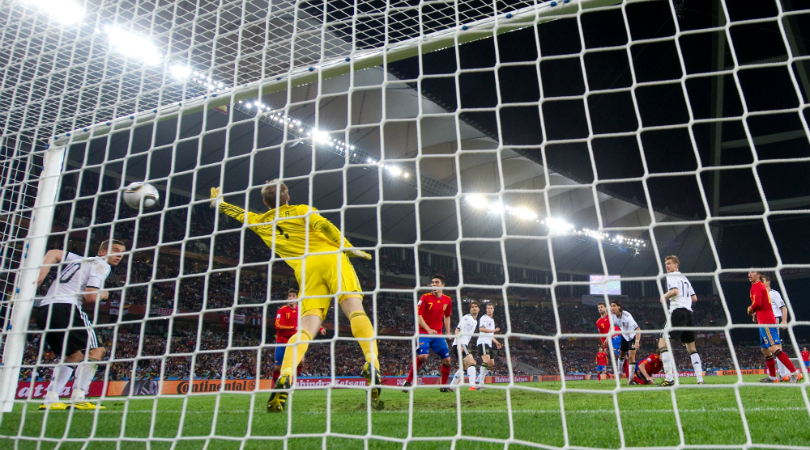
“Let’s hope only until Sunday,” laughed Puyol.
“Relax, Carles,” said Iniesta. “I’ll take care of that. Don’t you worry.”
The whole room fell silent. The man who had been running laps of the hotel corridors at 4am to prove to himself that he had recovered from injury believed in destiny.
He had his friend with him on the pitch. “Dani Jarque, siempreconnosotros,” read Iniesta’s handwritten undershirt, which he revealed after coming good on his promise to Puyol in extra time against Holland. Dani Jarque, always with us.
Xavi was among the first to congratulate his long-time team-mate.
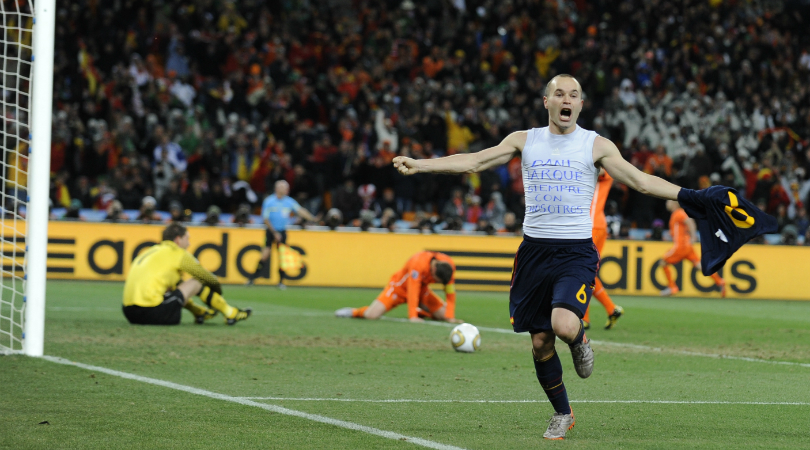
“They have a special relationship, they always have,” said Giovanni van Bronckhorst, a former Barça team-mate of both and the Dutch captain that night. “They just seem to know where the other one is. They have got absolutely everything – technique, the ability to score goals and play the killer pass. They are just complete midfielders – they never lose the ball.”
For the love
Ultimately, the pair just love playing football. “If I didn’t have training, I’d go and play five-a-side with my mates day or night,” Xavi tells FFT. “If we were playing now, and you had the ball, I would suffer because I want to drive, not be the passenger. I’m a football romantic. I’m not quick or strong. All I’ve got is the pass.”
A simple doctrine, adopted by his great partner in crime. Iniesta recently overtook Xavi as the most decorated player in Spanish football history.
“What I do in the stadium, I did on the school playground,” he says. “What I did at 12, I still do now.”
It just so happens that it won a World Cup.
Watch the latest FourFourTwo Film: the story of La Roja's era-defining triumph
World Cup Wonderland: stories, interviews and more
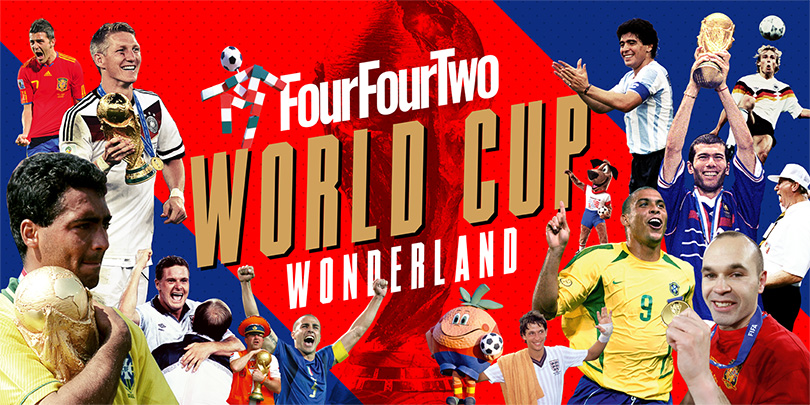
Andrew Murray is a freelance journalist, who regularly contributes to both the FourFourTwo magazine and website. Formerly a senior staff writer at FFT and a fluent Spanish speaker, he has interviewed major names such as Virgil van Dijk, Mohamed Salah, Sergio Aguero and Xavi. He was also named PPA New Consumer Journalist of the Year 2015.
